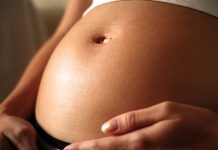2-Deoxy-D-Glucose(2-DG), a glucose analog that inhibits glycolysis, has recently received Emergency Use Authorization (EUA) in India for the treatment of moderate to severe COVID-19 patients. The molecule has been extensively researched and used in clinical trials for its ant-cancer properties. In addition to its use as an anti-cancer agent, 2-DG has been shown to have anti-inflammatory properties as well. It was hypothesized that 2-DG could be used to treat severe lung inflammation caused by SARS CoV-2 virus based on PET scan data on the accumulation of 18FDG (a radiotracer 2-DG analog) in the inflamed lungs of COVID-19 patients. Recently, emergency use authorization has been given by the Indian regulator based on phase 2 trial (data unavailable in public domain). Use of 2-DG has significant implications in terms of improving access to anti-COVID-19 medication for resource constrained settings, especially given the fact that vaccines and anti-viral drugs are unlikely to be available due to high cost and supply constraints for a large proportion of the world population very soon.
Glucose molecule has been selected by nature as a main source of energy for almost all the living cells since times immemorial and contains elements required for cell growth and multiplication. All these living cells undergo glucose metabolism (glycolysis) which is enhanced in diseases like cancer, viral infection, age related morbidities, neuronal diseases such as epilepsy and others. This makes a pertinent case for an analog of glucose, known as 2-deoxy-D-glucose (2-DG) to be used as an interfering molecule to block glucose metabolism.
2-DG has been doing the rounds for the past 6 decades. Research performed in the years 1958-60 showed 2-DG to have inhibitory effect not only on glycolysis1 and on solid and transplantable tumours in mice2 but had beneficiary effect on cancer patients as well3. Since then, a plethora of research has been conducted using 2-DG for prevention of cancer and tumour formation4-7, including numerous clinical trials. However, 2-DG molecule has not seen the light of the day in terms of becoming an approved drug by the regulatory authorities.
2-DG not only inhibits glycolysis as an analog of glucose but also acts an analog of mannose by interfering with N-linked glycosylation. This results in misfolded proteins leading to ER stress. This enables 2-DG to be used against cancers growing under normoxic as well as hypoxic conditions8. In addition, 2-DG has been shown to induce autophagy and apoptosis in various tumour cell types9, 10. 2-DG also plays a role in inhibiting viral replication in case of Kaposi’s sarcoma-associated herpesvirus (KSHV) by interfering with genome replication and preventing virion production7. With respect to its anti-cancer role, 2-DG has been shown to inhibit angiogenesis as well as metastasis. Interestingly, 2-DG plays an important role in activation of the immune system. Since glycosylation plays an important part in antigen recognition by the immune system and the fact that 2-DG inhibits N-linked glycosylation, it may modulate the antigenicity of tumour cells. 2-DG was shown to enhance etoposide-induced antitumor response by increasing the recruitment of CD8 cytotoxic T cells into the tumour sites11, 12. 2-DG also reduced LPS driven oxidative stress and capillary damage in lungs as well as reduction in inflammatory cytokines13. A number of clinical trials have been performed using 2-DG as an anti-cancer agent alone and in combination with other drugs and the safe dose has been narrowed down to 63mg/kg. Beyond this dose, cardiac side effects were seen such as QT prolongation. It was observed that continuous intra venous infusion yielded better results with respect to efficacy and lesser side effects as compared to 2-DG given orally.
The property of 2-DG to inhibit glycolysis and subsequently viral replication as mentioned above coupled with the fact that immune cells (monocytes and macrophages) in lungs become highly glycolytic during COVID-19 disease14, 15, has been exploited by several groups to combat SARS CoV-2 replication as an adjuvant with low dose radiation therapy16 or 2-DG on its own17, 18. 2-DG alone has been used in two clinical trials17, 18, sponsored by Dr. Reddy’s laboratories and INMAS, DRDO, New Delhi. 2-DG was chosen for trials based on its in vitro inhibition potential towards SARS CoV-2. One of the trials was a phase II trials in which a total dose of 63mg/kg/day (45mg/kg/day in the morning and 18mg/kg/day in the evening) was given orally for a total of 28 days to 110 subjects17. Using a radiotracer, 18FDG (fludeoxyglucose) with PET (Positron Emission Tomography) showed accumulation of radiolabelled 18FDG in the inflamed lungs of patients affected by COVID-19. This could be due to the high metabolic activity seen in lungs due to the SARS CoV-2 infection and the preferential accumulation of 2-DG can lead to inhibition of glycolysis, which in turn can lead to inhibition of viral replication. This study was completed in September 2020. Another phase III trial was started in January 2021 in which a dose of 90mg/kg/day (45mg/kg/day in the morning and 45mg/kg/day in the evening) will be given orally for a total of 10 days to 220 subjects18. This trial is expected to be completed by September 2021.
However, the use of 2-DG has been given emergency use authorization for use in moderate to severe COVID-19 patients by the Indian regulator. If the clinical trials meet the minimum required levels of safety and efficacy data, then 2-DG could see being approved as a drug used for moderate to severe COVID-19 patients.
Could 2-DG, once approved as a drug, become a substitute for anti-viral drugs that are recently being used for COVID-19? May or may not, because the anti-viral drugs are specific to the virus being targeted with minimal effect on otherwise healthy cells. On the other hand, 2-DG may have a little effect on healthy cells due to its mode of action. However, 2-DG is more cost-effective as compared to anti-viral drugs. This has significant implications in terms of improving access to anti-COVID-19 medication for resource constrained settings, especially given the fact that vaccines and anti-viral drugs are unlikely to be available due to high cost and supply constraints for a large proportion of the world population very soon.
***
DOI: https://doi.org/10.29198/scieu/210501
***
References:
- Nirenberg M W, and Hogg J F. Inhibition of anaerobic glycolysis in Ehrlich ascites tumour cells by 2-deoxy-D-glucose. Cancer Res. 1958 Jun;18(5):518-21. PMID: 13547043. https://pubmed.ncbi.nlm.nih.gov/13547043/
- Laszlo J, Humphreys SR, Goldin A. Effects of Glucose Analogues (2-Deoxy-D-glucose, 2-Deoxy-D-galactose) on Experimental Tumours. J. Natl. Cancer Inst. 24(2), 267-281, (1960). DOI: https://doi.org/10.1093/jnci/24.2.267
- Landau B R, Laszlo J, Stengle J, and Burk D. Certain metabolic and pharmacologic effects in cancer patients given infusions of 2-deoxy-D-glucose. J. Natl. Cancer Inst. 21, 485–494, (1958). https://doi.org/10.1093/jnci/21.3.485
- Jain V K, Kalia V K, Sharma R, Maharajan V and Menon M. Effects of 2-deoxy-D-glucose on glycolysis, proliferation kinetics and radiation response of human cancer cells. Int. J. Radiat. Oncol. Biol. Phys. 11, 943–950, (1985). https://doi.org/10.1016/0360-3016(85)90117-8
- Kern KA, Norton JA. Inhibition of established rat fibrosarcoma growth by the glucose antagonist 2-deoxy-D-glucose. Surgery. 1987 Aug;102(2):380-5. PMID: 3039679. https://pubmed.ncbi.nlm.nih.gov/3039679/
- Kaplan O, Navon G, Lyon RC, Faustino PJ, Straka EJ, Cohen JS. Effects of 2-deoxyglucose on drug-sensitive and drug-resistant human breast cancer cells: toxicity and magnetic resonance spectroscopy studies of metabolism. Cancer Res. 1990 Feb 1;50(3):544-51. PMID: 2297696. https://pubmed.ncbi.nlm.nih.gov/2297696/
- Maher, J.C., Krishan, A. & Lampidis, T.J. Greater cell cycle inhibition and cytotoxicity induced by 2-deoxy-D-glucose in tumor cells treated under hypoxic vs aerobic conditions. Cancer Chemother Pharmacol 53, 116–122 (2004). https://doi.org/10.1007/s00280-003-0724-7
- Xi H, Kurtoglu M, Lampidis T J. The wonders of 2-deoxy-D-glucose. IUBMB Life. 66(2), 110-121, (2014). DOI: https://doi.org/10.1002/iub.1251
- Aft, R., Zhang, F. & Gius, D. Evaluation of 2-deoxy-D-glucose as a chemotherapeutic agent: mechanism of cell death. Br J Cancer 87, 805–812 (2002). https://doi.org/10.1038/sj.bjc.6600547
- Kurtoglu M, Gao N, Shang J, Maher J C, Lehrman M A et al. Under normoxia, 2-deoxy-D-glucose elicits cell death in select tumor types not by inhibition of glycolysis but by interfering with N-linked glycosylation. Mol. Cancer Ther. 6, 3049–3058, (2007). DOI: https://doi.org/10.1158/1535-7163.MCT-07-0310
- Beteau M, Zunino B, Jacquin M A, Meynet O, Chiche J et al. Combination of glycolysis inhibition with chemotherapy results in an antitumor immune response. Proc. Natl. Acad. Sci. USA 109, 20071–20076, (2012). DOI: https://doi.org/10.1073/pnas.1206360109
- Characterization of the Effect of 2-Deoxy-d-Glucose(2-DG) on the Immune System https://doi.org/10.1006/brbi.1996.0035
- Pandey S, Anang V, Singh S, Bhatt A N, Natarajan K, Dwarakanath B S. 2-deoxy-D-Glucose-(2-DG) Prevents Pathogen Driven Acute Inflammation and Associated toxicity. Innovation in Aging, 4 (1), 885, (2020). DOI: https://doi.org/10.1093/geroni/igaa057.3267
- Ardestani A and Azizi Z. Targeting glucose metabolism for treatment of COVID-19. Sig Transduct Target Ther 6, 112 (2021). https://doi.org/10.1038/s41392-021-00532-4
- Codo A., et al 2020. Elevated Glucose Levels Favor SARS-CoV-2 Infection and Monocyte Response through a HIF-1α/Glycolysis-Dependent Axis. Cell Metabolism. 32(3), ISSUE 3, 437-446, (2020). https://doi.org/10.1016/j.cmet.2020.07.007
- Verma A et al. A combinatorial approach of a polypharmacological adjuvant 2-deoxy-D-glucose with low dose radiation therapy to quell the cytokine storm in COVID-19 management. (2020). https://doi.org/10.1080/09553002.2020.1818865
- Clinical Trials Registry 2021. Phase II study to evaluate the Safety and Efficacy of 2-Deoxy-D-Glucose in COVID -19 patients (CTRI/2020/06/025664). Available online at http://ctri.nic.in/Clinicaltrials/pmaindet2.php?trialid=44369&EncHid=&userName=2-Deoxy-d-Glucose
- Clinical Trials Registry 2021. A randomized, two treatment group clinical study to evaluate the effectiveness and safety of study drug 2-Deoxy-D-Glucose with SOC compared to SOC alone in treatment of moderate to severe COVID-19 patients. (CTRI/2021/01/030231). Available online at http://ctri.nic.in/Clinicaltrials/pmaindet2.php?trialid=50985&EncHid=&userName=2-Deoxy-d-Glucose
***




































